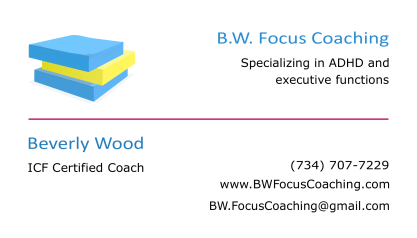 As students get older, higher-order thinking skills become increasingly necessary. Beginning in middle school the ability to get started on tasks; prioritize; focus; sustain effort; as well as manage time, impulses, and emotions become linked to success. Without support, bright students, who don’t yet have these skills, find themselves struggling to keep up. When there isn’t a clear path for change, recurring failures can be demoralizing, and finding the motivation to persist becomes harder. While a struggling student’s behavior may suggest otherwise, students want to succeed.
As students get older, higher-order thinking skills become increasingly necessary. Beginning in middle school the ability to get started on tasks; prioritize; focus; sustain effort; as well as manage time, impulses, and emotions become linked to success. Without support, bright students, who don’t yet have these skills, find themselves struggling to keep up. When there isn’t a clear path for change, recurring failures can be demoralizing, and finding the motivation to persist becomes harder. While a struggling student’s behavior may suggest otherwise, students want to succeed.
I provide students with the support they need while empowering them with choice and responsibility. Coaching is a partnership. I guide students as they create goals and help then develop achievable action steps. I ask open-ended nonjudgemental questions. Thinking through their answers, students become more aware of their strengths, gain insight into their challenges, and learn to make more thoughtful decisions. Coaching is a safe environment in which students can explore mistakes and in doing so learn from them. I encourage students to be curious about setbacks and celebrate small successes, which can lead to patterns of success.
 Teens
Teens
Often families come to coaching battle weary: parents are frustrated and exhausted; the teenager with ADHD is frustrated and sometimes demoralized. Executive function challenges and ADHD can make an already challenging developmental stage overwhelming. Coaching gives parents an opportunity to step back from daily monitoring, providing more opportunities for positive family time. Coaching creates a shift in responsibility: when parents step back, students often step up and take responsibility for their actions and progress. Having ownership is empowering: it helps teens find the motivation needed to move forward and make lasting change.
— If your student is planning to attend college I highly recommend the book On Your Own: A College Readiness Guide for Teens with ADHD/LD by Patricia O. Quinn and Theresa E. Laurie Maitland. Here’s a link to a helpful ADDitude Magazine article: Supporting College-Bound Students
 College Students
College Students
While college is a new and exciting time for students, the transition is often challenging. It’s difficult for students to anticipate the extent to which their lives and ability to function will change in college. Students find that they’re required to meet higher expectations with less support and while thrilled by their newfound freedom students are typically unaware of how much they depended on the structure they left behind.
Some of the differences between high school and college:
- learning in college is more self-directed; professors are less flexible, and fewer tests determine final grades
- along with more complicated and difficult work, students need to balance new personal responsibilities such as social commitments, wellness, healthcare, and finances
- students have more choices and less structure: class schedules vary throughout the week and students create their own routines for studying, leisure and socializing
- parents are no longer monitoring sleeping and eating habits, medications, hygiene, curfews, etc.
- students don’t regularly interact with adults who help them stay on track
Students who managed to get by in high school may not yet have the skills needed in college to manage additional responsibilities and freedoms. I help bridge the gap by giving students the support they need to better manage their lives while respecting their need for independence.
Another helpful ADDitude Magazine article: ADHD and College: Survival Guide for Students with ADD

Images
courtesy of
Morguefile.com

